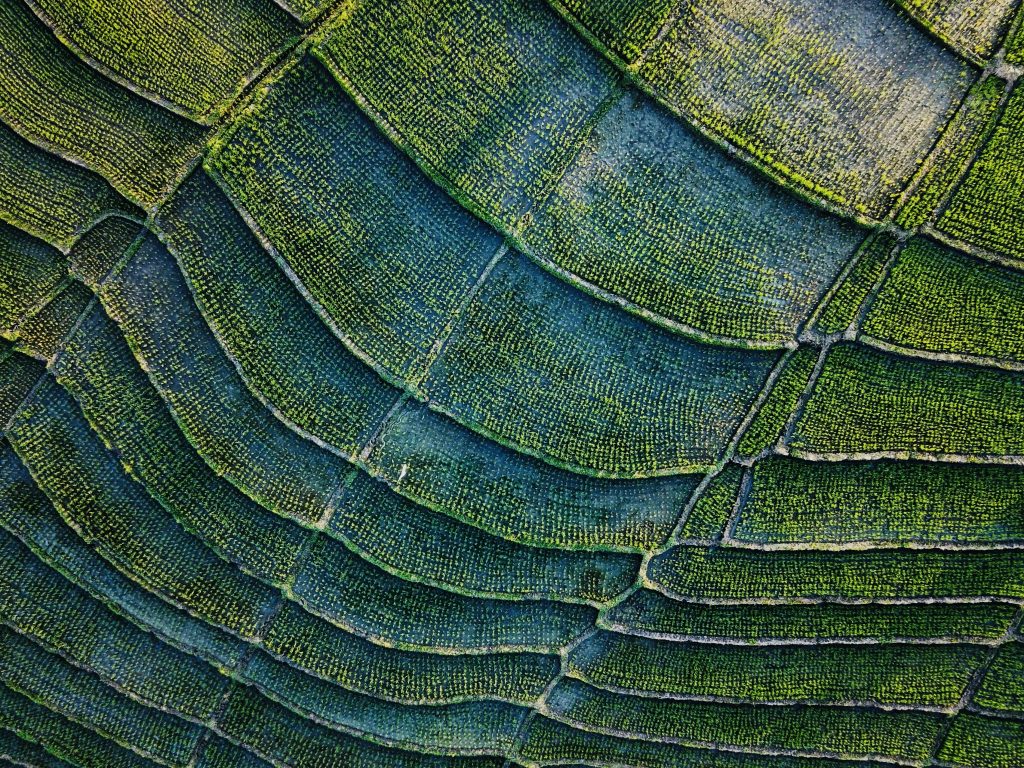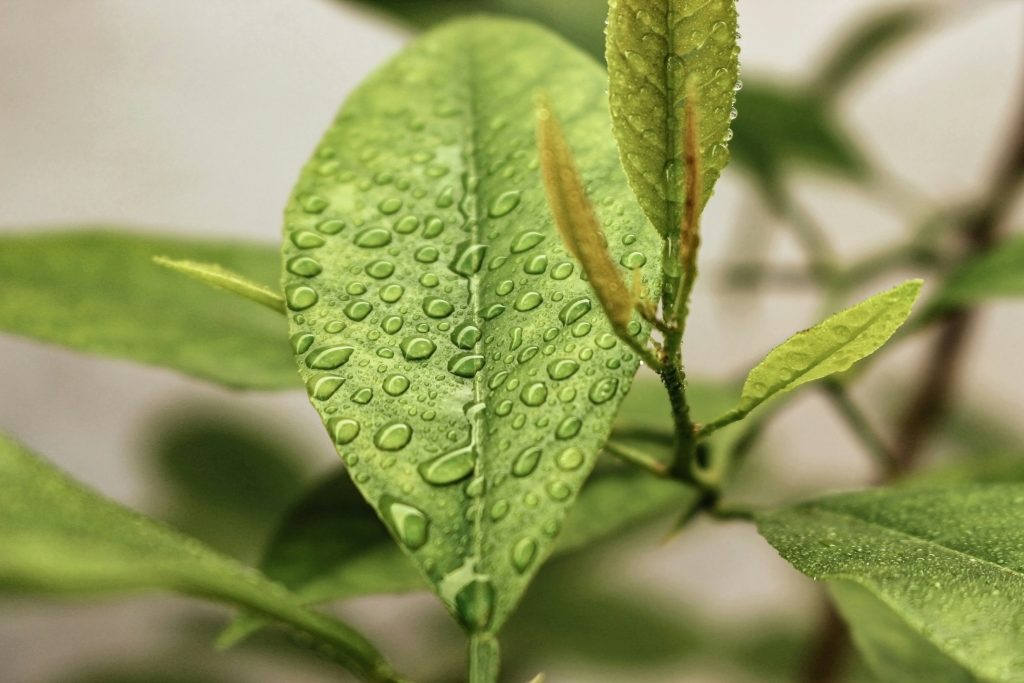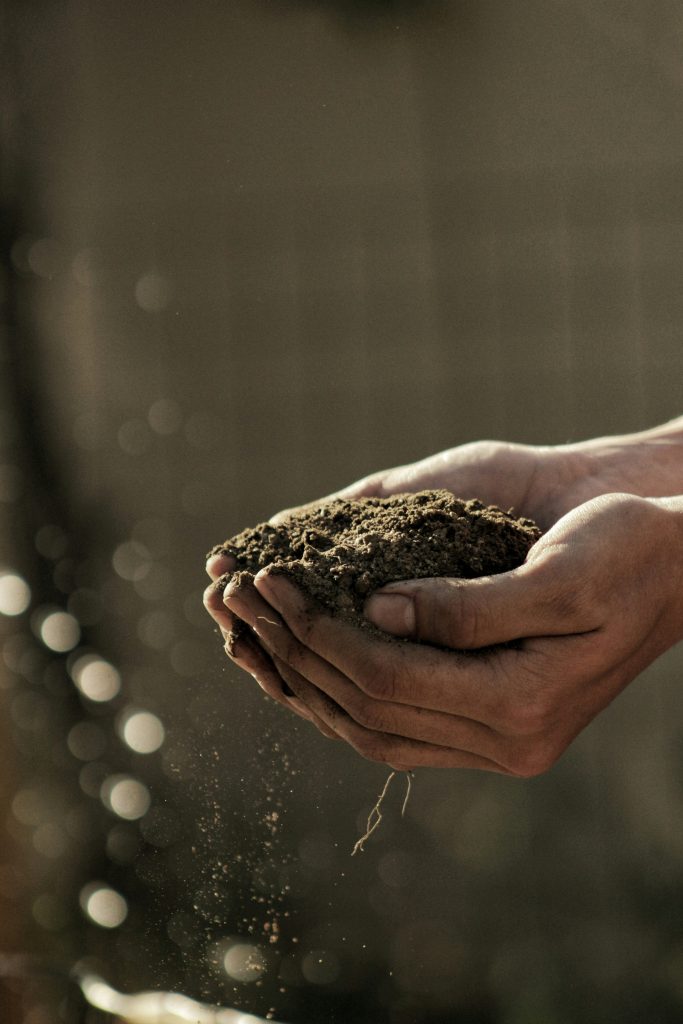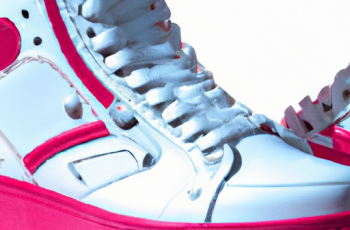Are you a sneaker enthusiast who is also passionate about sustainability? Then you’re in luck! The future of knit sneakers lies in eco-friendly materials that not only offer style and comfort but also promote a greener planet. In this article, we will explore how these innovative materials are revolutionizing the sneaker industry and why you should consider adding a pair of eco-friendly knit sneakers to your collection. Get ready to step into a more sustainable future without compromising on fashion or performance.

Why Knit Sneakers are Popular
Comfort and flexibility
Knit sneakers have gained immense popularity among consumers due to the comfort and flexibility they offer. The unique construction of the knit upper provides a snug fit, allowing your feet to move naturally and flexibly. The stretchy and breathable nature of the fabric molds to the shape of your foot, ensuring maximum comfort throughout the day. Whether you’re going for a run or simply walking around, these sneakers provide the perfect combination of support and flexibility.
Lightweight design
Another reason why knit sneakers have become so popular is their lightweight design. Traditional sneakers often weigh you down and can be cumbersome, especially during physical activities. However, knit sneakers are made with lightweight materials, such as polyester yarns or hemp fibers, which significantly reduce the weight without compromising on durability or support. This makes them the ideal choice for individuals who prefer lightweight footwear without sacrificing performance.
Breathable construction
One of the key features that make knit sneakers popular is their breathable construction. The knit fabric allows for ample airflow to circulate around your feet, preventing excessive sweating and unpleasant odor. This breathability not only keeps your feet cool and dry but also helps maintain optimal foot health. With knit sneakers, you can say goodbye to sweaty and uncomfortable feet, even during the hottest summer days.
The Environmental Impact of Sneaker Production
High carbon footprint
Sneaker production, especially on a large scale, contributes significantly to carbon emissions. The use of fossil fuels in manufacturing processes, transportation, and the extraction of raw materials all contribute to the carbon footprint of sneakers. However, many companies are now embracing sustainable practices and opting for eco-friendly materials to reduce their carbon emissions and mitigate the environmental impact of sneaker production.
Water and energy consumption
The production of sneakers involves high water and energy consumption. From the cultivation of raw materials to the manufacturing processes, vast amounts of water and energy are required. Additionally, water is often used in dyeing and finishing processes, leading to water pollution as chemicals are discharged into the environment. By adopting eco-friendly materials and implementing more efficient manufacturing techniques, the water and energy consumption can be significantly reduced, minimizing the strain on natural resources.
Waste generation
The sneaker industry also generates a substantial amount of waste throughout the production process. This waste includes excess materials, packaging, and discarded prototypes or samples. Unfortunately, much of this waste ends up in landfills, contributing to environmental degradation. However, with the increasing focus on sustainability, brands are now finding innovative ways to reduce waste generation. By utilizing recyclable materials and implementing recycling programs, the sneaker industry is taking steps towards a more circular and zero-waste production model.
Eco-friendly Materials in Knit Sneakers
Recycled polyester yarns
One popular eco-friendly material used in the production of knit sneakers is recycled polyester yarns. These yarns are made from recycled plastic bottles and other post-consumer waste. By transforming waste into usable materials, sneakers made with recycled polyester yarns help reduce the amount of plastic pollution in our oceans and landfills. Additionally, these sneakers provide the same level of performance and comfort as sneakers made from virgin polyester, making them an excellent sustainable alternative.
Organic cotton
Organic cotton is another eco-friendly material commonly used in knit sneakers. Unlike conventional cotton, organic cotton is grown without the use of synthetic pesticides or fertilizers, reducing the environmental impact of its cultivation. This ensures that the production of organic cotton is more sustainable and less harmful to ecosystems and human health. Sneakers made with organic cotton offer the same comfort and breathability as those made from conventional cotton while promoting better farming practices and supporting organic agriculture.
Hemp fibers
Hemp fibers have gained popularity in the production of knit sneakers due to their sustainability and durability. Hemp is a fast-growing plant that requires minimal water and pesticides to grow, making it an environmentally friendly alternative to other natural fibers. Sneakers made with hemp fibers are not only breathable and moisture-wicking but also highly durable, ensuring longevity and reducing the need for frequent replacements. Furthermore, hemp is biodegradable, meaning that at the end of their lifespan, these sneakers can return to the earth without causing harm to the environment.
Seaweed-based materials
Seaweed-based materials are emerging as a promising eco-friendly option for knit sneakers. These materials are derived from sustainably harvested seaweed, which grows abundantly in oceans and does not require land or freshwater resources to cultivate. Sneakers made with seaweed-based materials offer a combination of breathability, flexibility, and lightweight properties, making them an excellent choice for eco-conscious consumers. Additionally, these materials have natural antimicrobial properties, helping to keep your feet fresh and odor-free.
Plant-based alternatives
Many brands are exploring plant-based alternatives, such as pineapple leaf fibers and eucalyptus tree pulp, in the production of knit sneakers. Pineapple leaf fibers, known as Piñatex, are a byproduct of the pineapple industry, offering a sustainable and cruelty-free leather substitute. Eucalyptus tree pulp, on the other hand, is used to create a material known as Tencel, which is soft, breathable, and biodegradable. These plant-based alternatives provide consumers with sustainable options that are both stylish and environmentally friendly.
Advantages of Eco-friendly Materials in Knit Sneakers
Reduced carbon footprint
By using eco-friendly materials in the production of knit sneakers, the carbon footprint of the footwear industry can be significantly reduced. Eco-friendly materials often require less energy and resources to produce compared to traditional materials. For example, using recycled polyester yarns eliminates the need for virgin polyester production, which is energy-intensive. By opting for sustainable materials, brands can contribute to the overall reduction of carbon emissions and combat climate change.
Lower water and energy consumption
One of the significant advantages of eco-friendly materials in knit sneakers is the lower water and energy consumption throughout the production process. For instance, organic cotton requires less water for cultivation compared to conventional cotton, conserving this precious resource. Additionally, materials like hemp and seaweed-based fabrics require minimal irrigation and use fewer chemicals, further reducing water consumption. By embracing eco-friendly materials, the sneaker industry can reduce its impact on water resources and promote sustainable water management.
Minimal waste generation
Eco-friendly materials also help minimize waste generation in the sneaker industry. Many sustainable materials, such as recycled polyester yarns and plant-based alternatives, are derived from post-consumer waste or agricultural byproducts. By diverting waste from landfills and repurposing it into valuable resources, these materials contribute to a more circular production model. Furthermore, manufacturers can adopt recycling and repurposing programs, ensuring that sneakers and their components have a second life instead of being discarded as waste.
Biodegradability
Another advantage of eco-friendly materials is their biodegradability, meaning they can naturally decompose without releasing harmful toxins into the environment. Natural fibers like hemp and organic cotton, as well as certain plant-based alternatives, are biodegradable, ensuring that sneakers made from these materials do not contribute to litter or landfill waste. Biodegradability is crucial for reducing the long-term impact of sneakers on the environment and promoting sustainability.

Latest Innovations in Eco-friendly Knit Sneaker Materials
Mycelium-based leather alternatives
Mycelium-based leather alternatives are paving the way for sustainable and cruelty-free materials in the sneaker industry. Mycelium, the root structure of mushrooms, can be grown and manipulated to create a leather-like material that is biodegradable and animal-friendly. This innovative material offers the same durability, flexibility, and aesthetic appeal as traditional leather, without the environmental impact or ethical concerns. Sneakers made with mycelium-based leather alternatives exemplify the cutting-edge technology and eco-consciousness driving the future of footwear.
Recycled plastic bottle yarns
Recycled plastic bottle yarns continue to be at the forefront of sustainable materials in knit sneakers. Brands are increasingly using PET bottles to create yarns that can be woven into breathable and high-performance uppers. By transforming plastic waste into stylish footwear, these sneakers not only reduce the demand for virgin materials but also help mitigate plastic pollution. This innovation highlights the potential of recycling and repurposing to revolutionize the sneaker industry and promote a circular economy.
Bio-based Tencel fibers
Bio-based Tencel fibers, made from sustainably sourced eucalyptus tree pulp, offer a unique combination of comfort and sustainability. These fibers are softer and more breathable than traditional materials, providing a luxurious feel. Sneakers made with bio-based Tencel fibers are not only eco-friendly but also temperature-regulating, making them suitable for various climates. This material innovation showcases the synergy between nature and technology, creating sustainable alternatives without compromising on performance or style.
Piñatex pineapple leather
Piñatex, a pineapple leaf fiber fabric, has gained recognition as a sustainable and cruelty-free leather alternative. This innovative material utilizes the waste from the pineapple industry, reducing agricultural waste and creating a valuable resource. Piñatex has a similar appearance and durability to traditional leather, making it ideal for use in sneaker uppers. Sneakers made with Piñatex are not only stylish but also contribute to a circular economy by repurposing waste and promoting sustainable practices.
Algae-based foam midsoles
Algae-based foam midsoles are revolutionizing the sustainable sneaker market. These midsoles are made from algae harvested from polluted water sources, creating a dual benefit of ecological restoration and sustainable material production. Sneakers with algae-based foam midsoles offer excellent cushioning and impact absorption, ensuring comfort while reducing the reliance on petroleum-based foams. This innovation highlights the potential of nature-inspired solutions to transform the sneaker industry and foster a greener future.
Collaborative Efforts for Sustainable Sneaker Production
Partnerships with sustainable material suppliers
Leading sneaker brands are actively seeking partnerships with sustainable material suppliers to source environmentally friendly materials for their products. These collaborations ensure the availability and scalability of eco-friendly materials, allowing brands to meet the growing demand for sustainable sneakers. By working together, brands and suppliers can drive innovation, create industry-wide standards, and promote the production of sustainable materials.
Integration of eco-friendly practices in manufacturing processes
Sustainable sneaker production involves more than just using eco-friendly materials. It also requires integrating environmentally friendly practices throughout the manufacturing processes. Brands are adopting energy-efficient technologies, implementing water recycling systems, and reducing waste in their factories. By optimizing their manufacturing processes, brands can further minimize their environmental impact and make a positive contribution to sustainability.
Supporting recycling and circular economy initiatives
Many sneaker brands are actively supporting recycling and circular economy initiatives to reduce waste and promote sustainability. Some brands have established take-back programs, where customers can return their old sneakers to be recycled or repurposed into new products. Others are partnering with recycling companies to ensure that the materials used in their sneakers can be recovered and reused at the end of their lifespan. These efforts help close the loop in the sneaker lifecycle and contribute to a more circular and sustainable future.

Brands Leading the Way
Nike
Nike is one of the leading brands driving the adoption of eco-friendly materials in the sneaker industry. Through their “Move to Zero” initiative, Nike aims to create sustainable footwear and apparel by using recycled materials and reducing their carbon footprint. The brand has introduced sneakers made with recycled polyester yarns, sustainable leather alternatives, and innovative foam midsoles derived from renewable sources. Nike’s commitment to sustainability demonstrates their role as a leader in the industry and their dedication to creating a greener future.
Adidas
Adidas is another major brand that is actively pursuing sustainability in sneaker production. With their “End Plastic Waste” initiative, Adidas is committed to phasing out virgin plastic from their products and supply chain. The brand has launched sneakers made with recycled plastic bottle yarns, demonstrating their dedication to reducing plastic pollution and utilizing sustainable materials. By promoting a circular economy and taking steps towards a plastic-free future, Adidas sets an example for others in the industry to follow.
Allbirds
Allbirds, known for their innovative and sustainable approach, has gained recognition as a leading brand in eco-friendly sneakers. They prioritize the use of natural and renewable materials, such as wool, eucalyptus tree fibers, and sugarcane-based foam. Allbirds takes a holistic approach to sustainability, considering every aspect of their products’ lifecycle. From sourcing to manufacturing, Allbirds aims to minimize their environmental impact while delivering comfortable and stylish sneakers.
Veja
Veja is a brand that has been at the forefront of sustainable sneaker production since its inception. Their sneakers are made with organic cotton, wild rubber sourced from the Amazon rainforest, and leather alternatives derived from plants. Veja places a strong emphasis on transparency, fair trade practices, and environmental responsibility. By exemplifying sustainable business practices, Veja has established themselves as a trailblazer in the eco-friendly sneaker industry.
Rothy’s
Rothy’s is a brand known for its use of recycled materials, particularly recycled water bottles, in the production of their sneakers. The brand converts these bottles into a proprietary thread that is then woven into the knit uppers of their shoes. Rothy’s commitment to sustainability extends beyond their materials; they also prioritize ethical manufacturing practices and aim to reduce waste throughout their supply chain. With their sleek and sustainable designs, Rothy’s is making strides towards a more eco-friendly sneaker industry.
Challenges in Implementing Eco-friendly Materials
Cost considerations
One of the main challenges in implementing eco-friendly materials in the sneaker industry is the cost factor. Sustainable materials often come at a higher price compared to traditional materials, mainly due to the additional processes and certifications involved. This cost difference can pose a barrier for both brands and consumers. However, as demand for sustainable products increases and economies of scale are achieved, the cost of eco-friendly materials is expected to decrease, making them more accessible to a wider audience.
Performance and durability
Another challenge lies in ensuring that eco-friendly materials meet the performance and durability standards expected from sneakers. Brands need to develop sustainable materials that can withstand rigorous use, provide optimal support and cushioning, and retain their shape over time. While advancements have been made, there is ongoing research and development to enhance the performance capabilities of eco-friendly materials. Brands must strike a balance between sustainability and functionality to ensure the longevity and performance of their eco-friendly sneakers.
Availability and scalability
The availability and scalability of eco-friendly materials can also pose challenges. It can be difficult for brands to secure a consistent supply of sustainable materials, especially if they are relatively new or require specific cultivation or extraction processes. Additionally, as sustainable materials gain popularity, there may be limitations in production capacities, making it challenging for brands to scale their sustainable offerings. Collaborative efforts between brands, suppliers, and manufacturers play a crucial role in addressing these challenges and establishing a robust and sustainable supply chain.
Consumer Demand for Eco-friendly Sneakers
Increasing awareness and consciousness
Consumer awareness and consciousness regarding sustainability have significantly increased in recent years. People are becoming more conscious of the environmental impact of their purchasing decisions, including the products they wear. As individuals become more educated about the importance of sustainable practices, they seek out eco-friendly options, including sneakers made with environmentally friendly materials. This increasing awareness and consciousness are driving the demand for eco-friendly sneakers and influencing the industry to adopt more sustainable practices.
Preference for sustainable products
There is a growing preference among consumers for sustainable products across all industries, including footwear. Many individuals prioritize sustainability when making purchasing decisions and actively seek out brands that align with their values. Sustainable sneakers offer consumers the opportunity to make a positive environmental impact while still enjoying stylish and high-quality footwear. As consumer preferences shift towards sustainability, brands have adjusted their strategies to meet this demand and are incorporating eco-friendly materials into their designs.
Market growth and trends
The market for eco-friendly sneakers is experiencing significant growth and shows no signs of slowing down. As sustainability becomes an integral part of fashion and footwear industries, brands are recognizing the need to adapt to this market trend. The rise of sustainable influencers, eco-friendly fashion campaigns, and increased media coverage have all contributed to the growth of the market for eco-friendly sneakers. With this growing demand, brands are investing in sustainable innovations and expanding their eco-friendly footwear offerings to cater to a wider range of consumers.
Conclusion
Eco-friendly materials are driving the future of knit sneakers, revolutionizing the industry and promoting sustainability. The popularity of these sneakers can be attributed to their comfort, flexibility, lightweight design, and breathable construction. However, the environmental impact of traditional sneaker production, such as high carbon footprints, water and energy consumption, and waste generation, necessitates a shift towards more sustainable practices.
Eco-friendly materials like recycled polyester yarns, organic cotton, hemp fibers, and seaweed-based materials offer numerous advantages, including reduced carbon footprints, lower water and energy consumption, minimal waste generation, and biodegradability. Furthermore, the latest innovations in eco-friendly materials, such as mycelium-based leather alternatives and algae-based foam midsoles, are pushing the boundaries of sustainable footwear.
Collaborative efforts between brands, sustainable material suppliers, and manufacturers are crucial for the successful implementation of eco-friendly materials in sneaker production. Partnerships, the integration of eco-friendly practices in manufacturing processes, and support for recycling and circular economy initiatives all play a vital role in creating a more sustainable sneaker industry.
Brands like Nike, Adidas, Allbirds, Veja, and Rothy’s are leading the way in sustainable sneaker production, setting an example for others to follow. Nevertheless, challenges such as cost considerations, performance, durability, and availability and scalability of eco-friendly materials need to be addressed to accelerate the transition to a more sustainable future.
The increasing consumer demand for eco-friendly sneakers, driven by growing awareness, a preference for sustainable products, and market trends, is shaping the industry. As consumers become more conscious of the environmental impact of their choices, brands must respond by offering sustainable options and embracing eco-friendly materials.
The future of knit sneakers lies in the use of eco-friendly materials, continued innovation, and collaborations that prioritize sustainability. Through these collective efforts and consumer influence, the industry can make significant strides towards a greener and more environmentally conscious future.


